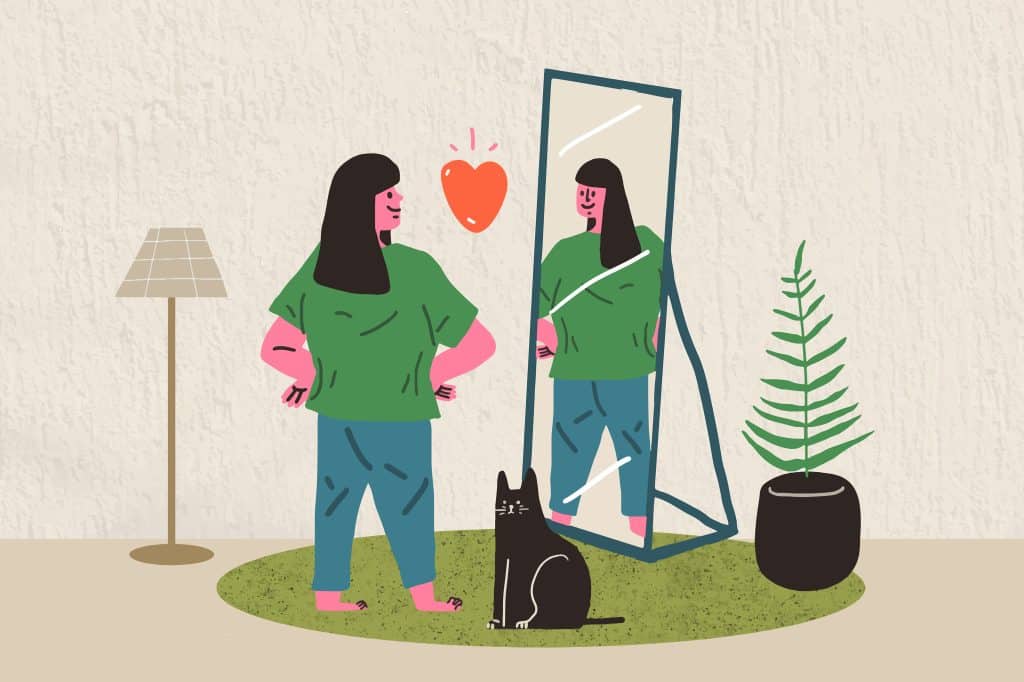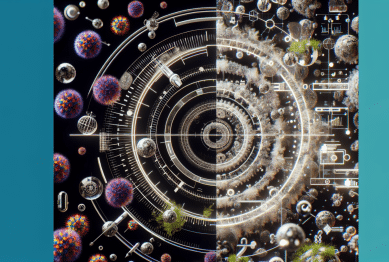In today’s wellness world, personal growth is no longer just about fitness and diet. Reflection has emerged as a key tool to foster mental clarity, emotional healing, and sustainable well-being. Are you ready to take your wellness journey to the next level? It starts with a simple yet powerful practice: self-reflection.

Personal growth is often linked with goal-setting, fitness, and self-improvement. However, in recent years, a growing body of research and wellness trends has highlighted the profound impact of self-reflection on overall wellness. Reflection is not just about looking back; it’s about evaluating where you are, where you want to go, and making adjustments to align your actions with your values. This holistic approach to personal growth is more crucial than ever, as we move toward a future where mental well-being is just as important as physical health.
The Rising Trend of Reflection in Wellness:
Wellness has evolved from merely physical health to an integrated approach that includes mental, emotional, and spiritual well-being. Reflecting on one’s life, values, and goals is now considered essential for holistic health. Research shows that incorporating reflection into daily routines can reduce stress, enhance mindfulness, and improve decision-making skills (Kabat-Zinn, 2020).
By engaging in regular self-reflection, individuals are empowered to make conscious changes in their lives that support their mental clarity and emotional resilience. Reflection becomes a tool for mindfulness—an essential practice in the wellness field that helps individuals recalibrate their intentions.
Why Self-Reflection is Key to Personal Growth:
Reflection is crucial for personal growth because it promotes self-awareness, which is the cornerstone of mental health and resilience. Through reflection, individuals gain insights into their behavior, thoughts, and emotions. Understanding these patterns is the first step in breaking negative cycles and fostering positive change.
Self-reflection allows us to step out of our routines and habitual reactions, forcing us to analyze our behaviors, intentions, and decisions in a deeper way. With self-awareness, we can identify areas where we need improvement and acknowledge our strengths. Self-reflection helps us break free from reactive patterns, guiding us to make decisions from a place of clarity and purpose rather than impulse or external pressures.
Some key benefits of reflection include:
- Emotional Clarity: Reflection helps individuals identify their emotional triggers, leading to better emotional regulation.
- Growth Mindset: Reflecting on past experiences helps individuals learn from failures and successes, nurturing a growth mindset.
- Decision-Making: Reflection aids in making more aligned, conscious choices by evaluating past actions and their consequences.
Practical Ways to Incorporate Reflection in Your Wellness Routine:
Here are a few actionable strategies to begin reflecting as part of your wellness journey:
1. Journaling for Clarity and Progress:
Start with a simple daily journaling practice. Write down your thoughts, experiences, and feelings without judgment. Over time, journaling can help you identify recurring patterns in your emotions, habits, and beliefs, offering valuable insights for growth. Journaling is also a safe space where you can reflect on your experiences and process your thoughts in a creative and calming way.
As you jot down your experiences, ask yourself questions like:
- What went well today?
- What could I improve upon tomorrow?
- How did I feel about the events of the day?
This practice doesn’t need to be time-consuming—just five to ten minutes of reflecting on your day can yield profound results.
2. Meditation and Mindfulness Practices:
Incorporating mindfulness into your daily routine is a powerful form of self-reflection. Meditation helps you stay present and observe your thoughts without becoming attached to them. This practice increases awareness and helps you identify negative thought patterns that could hinder personal growth.
Mindfulness helps individuals observe their feelings and thoughts in real time, without judgment, allowing them to make more conscious choices. Reflection through mindfulness helps you develop emotional resilience and self-compassion, both of which are important components of personal growth.
You could start your mindfulness journey with short, guided meditation sessions. Apps like Headspace or Calm provide a variety of meditations aimed at helping individuals connect with their present moment.
3. Set Reflection Time:
Create a dedicated space and time each day for self-reflection. This could be at the start of your morning or before bed. Use this time to assess your progress towards your wellness goals and make adjustments to your plan if needed. It’s also an excellent time to check in with your emotions and mental health.
This designated reflection time allows you to pause and give attention to your growth, successes, and any areas of improvement. Make this practice a non-negotiable part of your day to maintain consistency and achieve long-term results.
4. Engage in Deep Reflection Questions:
Sometimes, reflection requires more than surface-level thought. Ask yourself questions like:
- What did I learn from my experiences today?
- How do my actions align with my values?
- What obstacles am I facing, and what can I do to overcome them?
- Am I satisfied with my mental and emotional well-being? Why or why not?
By asking yourself deeper questions, you can dig into your subconscious and uncover hidden beliefs or patterns that might be holding you back from achieving personal growth.
How Self-Reflection Supports Emotional and Mental Wellness:
Reflection has a direct link to mental wellness. Studies have shown that those who engage in regular reflective practices are better at managing stress and anxiety. By addressing unresolved emotional issues through reflection, individuals can experience a sense of closure, leading to better emotional health (Goleman, 2017).
Additionally, self-reflection is known to reduce feelings of burnout. When we slow down and reflect on our feelings, we gain a greater sense of control over our emotions, which in turn reduces emotional exhaustion. Reflection allows for emotional processing, enabling individuals to heal from past trauma and move forward with confidence.
Reflection also supports mental wellness by promoting a practice of self-compassion. Through reflection, we learn to treat ourselves with kindness, understanding, and forgiveness, which is critical for maintaining positive mental health.
The Science Behind Reflection and Personal Growth:
Research in neuroscience reveals that self-reflection activates the brain’s prefrontal cortex, responsible for complex decision-making, planning, and self-regulation (Higgins, 2020). Engaging in thoughtful reflection helps rewire the brain for more adaptive responses to stress, anxiety, and negative emotions.
Reflection actually strengthens neural pathways that support emotional intelligence and decision-making. This practice helps you reframe challenges and failures as learning experiences rather than as sources of stress, encouraging resilience and adaptability.
Reflection’s Role in Building Resilience:
Resilience, the ability to bounce back from adversity, is another key benefit of reflection. By looking at past challenges and evaluating how you navigated them, you can build a stronger sense of inner strength. Reflection allows you to pinpoint coping mechanisms that worked well and discard those that were unhelpful, which builds resilience over time.
Building resilience through reflection means you can face future difficulties with a sense of calm and confidence. Reflection encourages you to develop a growth mindset, which allows you to approach life’s obstacles as opportunities for growth, rather than as setbacks.
Conclusion:
Fostering personal growth through reflection isn’t just a wellness trend—it’s a life-changing practice that can enhance every aspect of your mental, emotional, and physical well-being. Reflection empowers you to become more self-aware, make mindful decisions, and develop emotional resilience. By incorporating these reflective practices into your wellness journey, you can create a foundation for sustainable personal growth that will last a lifetime.
As we continue to prioritize mental health and holistic well-being, reflection provides a powerful tool for personal transformation. The next time you face a challenge, take a moment to reflect on it with openness and curiosity. You might find that the answer to your growth is already within you, waiting to be discovered.
References:
- Kabat-Zinn, J. (2020). Wherever You Go, There You Are: Mindfulness Meditation in Everyday Life. New York: Hyperion. Available at: https://www.amazon.com (Accessed: 1 August 2025).
- Goleman, D. (2017). Emotional Intelligence: Why It Can Matter More Than IQ. New York: Bantam Books. Available at: https://www.amazon.com (Accessed: 1 August 2025).
- Higgins, E. T. (2020). Self-Regulation: An Introduction. Cambridge: Cambridge University Press. Available at: https://www.cambridge.org (Accessed: 1 August 2025).









